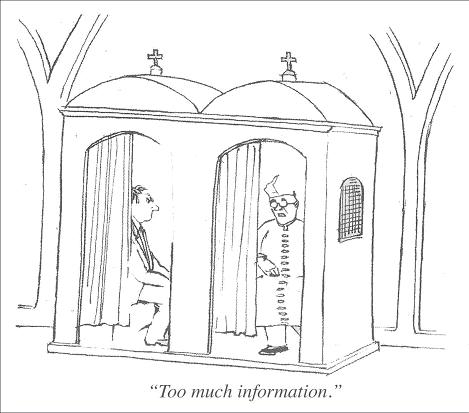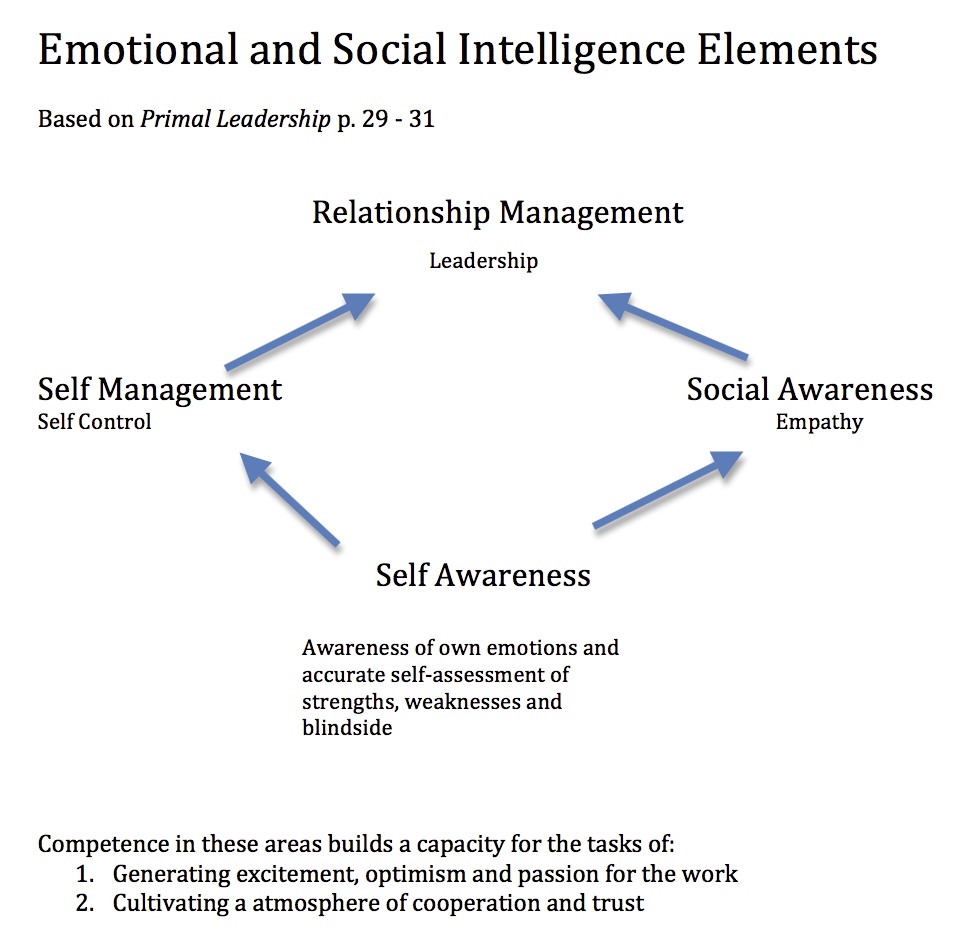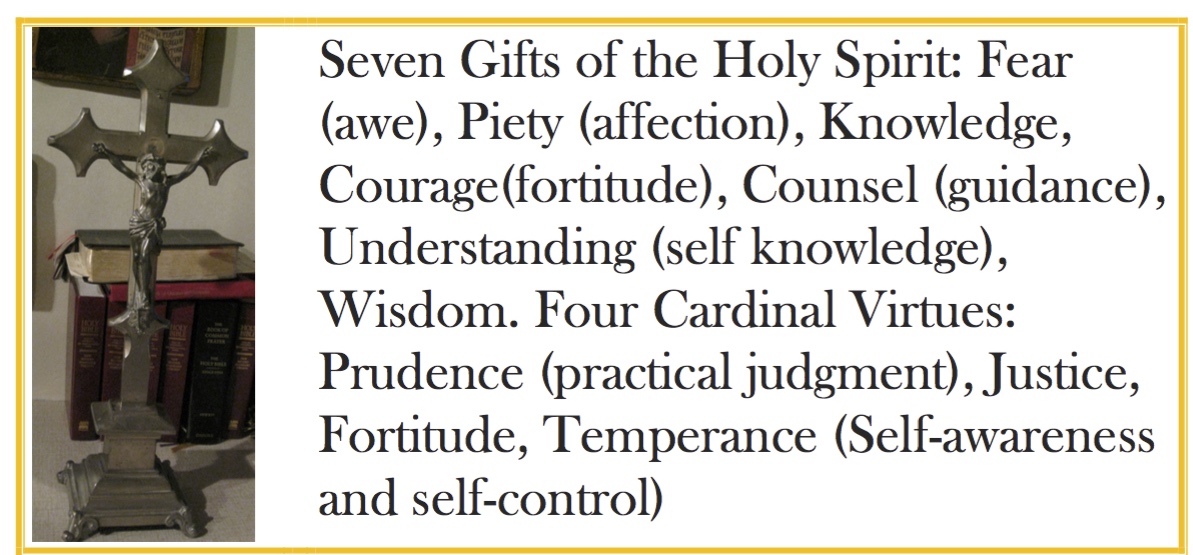 Sharing ourselves – TMI and TLI; personalness and openness
Sharing ourselves – TMI and TLI; personalness and openness
The parish community’s ability to develop trust in the new rector will in large part depend on how the priest shares his or her stories, feelings and thoughts.
In Part II I suggested that 90% of how the priest and congregation come to know one another is in two ways. First, how we manage the initial difficulties that arise in the relationship? And secondly, how we share ourselves, our stories, our feelings and thoughts? Here are a couple of ways of thinking about it.
TMI or TLI
One of the issues the priest faces is how much to share. That’s the TMI, TLI issue. Both are in the mind of the listener. If too many people, or key leaders, in the parish experience it as too much or too little – there’s a parish problem. If just a few have that experience – it’s an intra-personal or interpersonal problem.
 Sharing “too much information” (TMI) is when what’s being offered is boring, alarming, repulsive, and/or simply too much (an overload). The connection between those engaged in the conversation becomes awkward. Sharing “too little information” (TLI) can suggest secretiveness, deception, and concealment. The connection can become mistrustful.
Sharing “too much information” (TMI) is when what’s being offered is boring, alarming, repulsive, and/or simply too much (an overload). The connection between those engaged in the conversation becomes awkward. Sharing “too little information” (TLI) can suggest secretiveness, deception, and concealment. The connection can become mistrustful.
Personalness and openness
Some years ago Helen Oswald wrote a one-page handout on self disclosure. It was used in human interaction and group development training programs. She suggested that trust developed between and among people as they shared themselves with one another. She then described two ways in which we do that sharing. Personalness was defined as “revealing intimate, personal details of your private life.” Openness was defined as “revealing how you perceive and react to the present situation; sharing what you are feeling or thinking or wanting at that  moment; telling another person how his/her behavior is affecting you.”
moment; telling another person how his/her behavior is affecting you.”
Oswald saw both as useful in developing trust. She wrote, “Sharing intimate details of one’s private or past life may be appropriate to help someone understand your current behavior.” However, she saw such sharing as best coming after the relationship had experienced a good bit of openness. She wrote, “Openness requires a willingness to risk rejection. However, being open also carries the potential for being recognized as authentic, for gaining respect, and for establishing a norm of integrity in the relationship.”
Virtues and Emotional intelligence
Our ability and willingness to make productive decisions about sharing ourselves is a matter of virtue and emotional intelligence. Virtues of courage, perseverance, self understanding, self control, and practical judgment are all in play. How we manage the sins of pride, envy, avarice and anger are also in play. Our self awareness, self management, empathy, and ability to manage relationships are the emotional intelligence way of describing what’s needed.
 All these things can be learned and developed—over time.
All these things can be learned and developed—over time.
A PDF on Emotional Intelligence
What if we know that what we have available within us now is inadequate to the need? And that is of course always a safe bet. Benedict might suggest this – “take counsel.” Time to gather together a few people we believe to have the competence and wisdom. Time to listen.
rag+